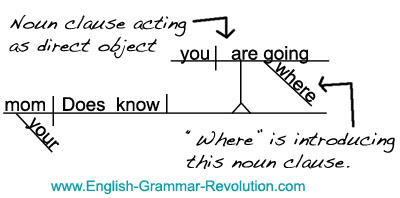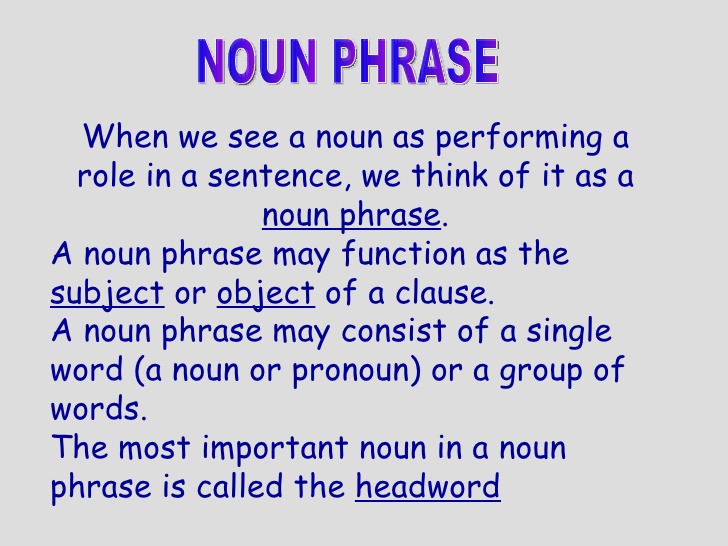34+ Fakten über What Is Noun Clouse: I knew exactly how clouds drifted on a july afternoon, what rain tasted like, how ladybugs preened and caterpillars rippled, what it felt like to sit.. Noun clauses can also be an object of a noun clause: Whether he will attend or not. • pay careful attention to what i am going to say. A noun clause usually begins with the following words: …what you have learned. this clause is a noun clause. • no one knows who he is. This page has lots of examples of noun clauses and an interactive exercise. Noun clauses can act as direct objects, subjects , indirect. What is a noun clause? So, what is the noun clause? It serves the same purpose as a noun. A noun clause is always a dependent clause, meaning it's a part of the sentence that can't stand on its own as an independent thought. A noun clause is a clause that plays the role of a noun. So, what must luke unlearn? Whether he will attend or not. You don't want to know what karen has planned to trick the boys. Like all clauses, a noun clause contains a subject (sometimes represented by one of the words above) and a predicate (a verb and any additional information i want to see what is available before i make a purchase. (what is available is the direct object of the verb see.) at this point, we'll take whatever. As a noun clause does the work of a noun, it can be subject to a sentence, object of a transitive verb, object of a preposition, apposition to a noun, or complement to a linking verb. A noun clause cannot stand alone because it is not a complete thought. That means it can be the subject or object of the verb in the main clause. A noun clause or nominal clause is a dependent or subordinate clause that does the work of a noun in a sentence. A noun clause is a dependent clause that acts as a noun. Noun clauses can play the role of. It must always be paired with an independent (main) clause. We offer clauses definition, clauses meaning, and all types of clauses and some clauses examples with clauses exercises. It acts as a noun. A noun clause is a subordinate clause in a complex sentence that acts as a noun. Noun clauses often use words such as when, what, why, who and other question words, but the speaker may or may not be making a question. A noun clause functions as a noun, which means it can be a subject, direct object, indirect object, object of a preposition, predicate nominative, or noun clauses usually begin with words called relative pronouns such as how, that, what, whatever, when, where, which, who, whoever, and why. Since it is a dependent clause, it cannot stand alone as a sentence. Noun clauses can act as direct objects, subjects , indirect. It serves the same purpose as a noun. A noun clause is a group of words that contains a subject and a verb. A noun clause is a dependent clause that acts as a noun. • noun clauses what's a noun clause? It can be used as the subject, direct object, indirect object, object of a preposition, subject complement, or appositive. Remember that a noun names a person, place, thing, or idea. Like all clauses, a noun clause contains a subject (sometimes represented by one of the words above) and a predicate (a verb and any additional information i want to see what is available before i make a purchase. (what is available is the direct object of the verb see.) at this point, we'll take whatever. Whether he will attend or not. What is a noun clause? How, that, what, whatever, when, where, whether, which, whichever, who, whoever, whom, whomever, and why. A noun clause is always a dependent clause, meaning it's a part of the sentence that can't stand on its own as an independent thought. What he said = object what he bought was awful: A noun clause is a subordinate clause in a complex sentence that acts as a noun. So, what is the noun clause? It acts as a noun. What i had forgotten was that i had a test today. Noun clauses are clauses that function as nouns. It can be used as the subject, direct object, indirect object, object of a preposition, subject complement, or appositive. Noun clauses replace nouns, and this tutorial shows how. It must always be paired with an independent (main) clause. Remember, because a noun clause is a clause, you should be able to find both a subject and a verb. You don't want to know what karen has planned to trick the boys. They're cool because the whole clause acts as a noun. • noun clauses what's a noun clause? Whatever, whichever, whoever, whomever, how, what, when which, whether, whom, who, why at the beginning. Noun clauses are a type of subordinate clause. …what you have learned. this clause is a noun clause. The two forms of noun clauses in the english language are finite noun clauses and nonfinite noun clauses.
Noun clauses can act as subjects, direct objects, indirect objects, predicate nominatives.

What is noun clause, example sentences

I have a surprise for whoever wins the race.
Home
Unlabelled
34+ Fakten über What Is Noun Clouse: I knew exactly how clouds drifted on a july afternoon, what rain tasted like, how ladybugs preened and caterpillars rippled, what it felt like to sit.
Monday, August 2, 2021
34+ Fakten über What Is Noun Clouse: I knew exactly how clouds drifted on a july afternoon, what rain tasted like, how ladybugs preened and caterpillars rippled, what it felt like to sit.
 34+ Fakten über What Is Noun Clouse: I knew exactly how clouds drifted on a july afternoon, what rain tasted like, how ladybugs preened and caterpillars rippled, what it felt like to sit.
Admin
5.0
stars based on
35
reviews
34+ Fakten über What Is Noun Clouse: I knew exactly how clouds drifted on a july afternoon, what rain tasted like, how ladybugs preen...
34+ Fakten über What Is Noun Clouse: I knew exactly how clouds drifted on a july afternoon, what rain tasted like, how ladybugs preened and caterpillars rippled, what it felt like to sit.
Admin
5.0
stars based on
35
reviews
34+ Fakten über What Is Noun Clouse: I knew exactly how clouds drifted on a july afternoon, what rain tasted like, how ladybugs preen...
Subscribe to:
Post Comments (Atom)
EmoticonEmoticon